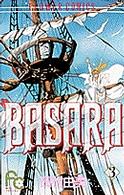Description
We often describe ourselves as agnostic on a wide range of topics, such as does God exist, is String Theory true, or will the President win re-election? But what, precisely, does it mean to be agnostic? This monograph employs the tools and techniques of analytic philosophy to offer a broad account of what it means to be agnostic in both theological and non-theological contexts, and offers a critical discussion of the major descriptive accounts of agnosticism in the contemporary analytic philosophical literature. Unlike most other volumes on the subject, which approach the question from a theological point of view, this is the first book-length discussion of agnosticism from a purely philosophical, as opposed to theological, point of view. It serves as a natural starting-point for students and specialists in philosophy and anyone who is interested in the topic of agnosticism through the lens of analytic philosophy.
Table of Contents
1. Introduction; 2. Criteria for a satisfactory account of agnosticism; 3. Competing attitudinal accounts of agnosticism; 4. The questioning-attitude account of agnosticism; 5. Agnosticism and the inquiring state of mind; 6. The act-attitude account of doxastic neutrality; 7. On the non-existence of practical agnosticism; 8. Agnosticism and pragmatic reasons; 9. Agnosticism, permissivism, and peer disagreement; 10. Conclusion; Bibliography; Index.








